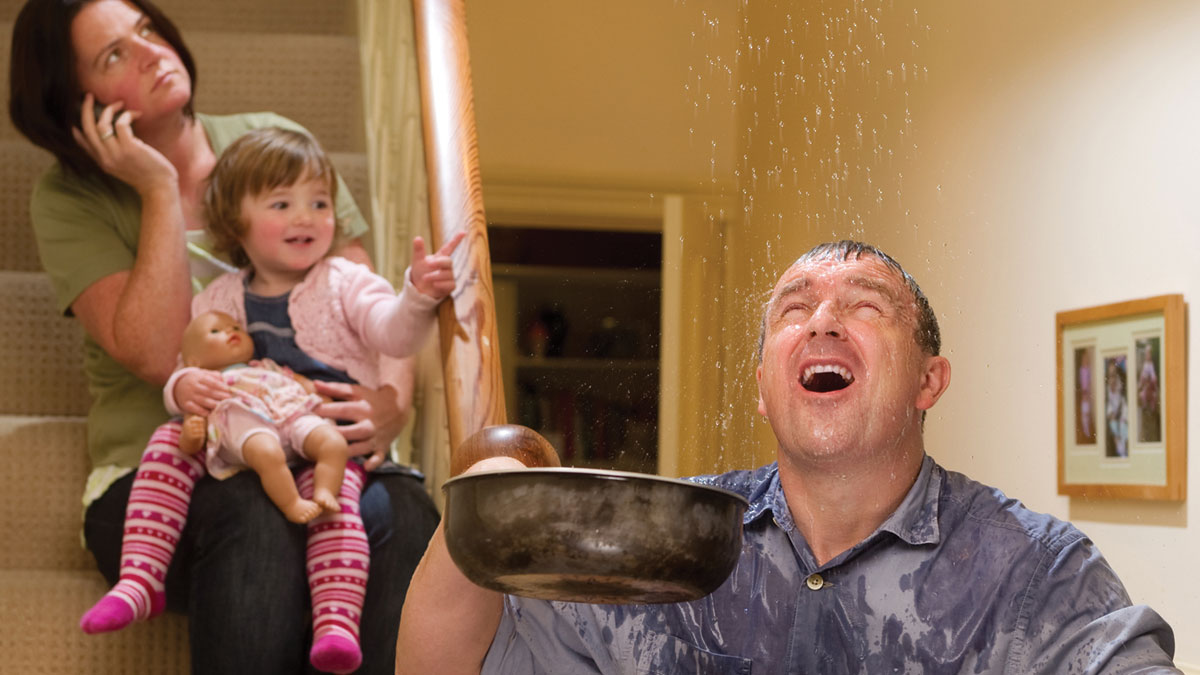
Bovis Homes, one of the UK’s largest housebuilders, revealed this week that it has set aside £7m to repair poorly built new houses that have been sold to customers. The firm is just one of several major UK housebuilders that have come under attack for selling sub-standard properties unfit for habitation, raising concerns about the declining quality of construction in the sector.
Critics say that a combination of the government’s push to expand the supply of new houses and the builders’ urge to cash in on a buoyant market has led to poor standards of workmanship in too many new builds.
Bovis has attracted especially high levels of criticism. Residents of some of its developments, such as the new Orchard Fields estate in Maidstone, Kent, have complained about wonky walls, floods, faulty electrical installations, and their homes being surrounded by mud and gaping drains. The end of 2016 also saw the builder accused of offering customers cash incentives to move into unfinished houses in a desperate attempt to meet its completion targets.
Many unhappy buyers have joined a 1,400-strong social media group called the “Bovis Homes Victims Group” to voice their concerns. In a statement, Bovis said it was aware of the social media movement and took the group’s issues seriously. As well as setting aside millions to repair properties, Bovis has said it will carry out a “deliberate slowing” of its rate of production in 2017, completing 10% to 15% fewer houses than the 3,977 it built in 2016. It’s also pledged to conduct an “end-to-end review” of its production process and has launched a “customer service task force” to deal with faulty houses.
Bovis is clearly experiencing unusually severe problems, but it’s not alone in having unhappy buyers. Other builders, including Taylor Wimpey, Persimmon, Barratt Homes and Linden Homes, have all received media criticism for being slow to fix problems. The government’s recent white paper on the UK’s housing market maintained that the building regulations are adequate, suggesting that its priority will remain the quantity rather than the quality of new houses. But some politicians are now calling for greater scrutiny: Oliver Colvile, the Conservative MP who chairs an all-parliamentary group on new builds, has proposed an independent ombudsman to hold housebuilders to account.
Are home warranties letting buyers down?
In theory, new home buyers are protected by a ten-year Buildmark guarantee, provided by the National House Building Council (NHBC). But homebuyers and industry experts both claim the standard-setting body is failing to protect consumers.
The NHBC provides warranties for about 80% of new houses built in any given year. Last year, its accounts show it spent £90m fixing 11,000 defective new houses. However, what is not listed is the total number of claims the NHBC rejects because the estimated cost of remedial work was judged by the NHBC to be less than its “minimum claim value” of £1,500, says Phil Waller, a retired construction manager who now runs Brand-NewHomes.co.uk, a website highly critical of the industry. So, unless buyers’ houses need costly repairs, their warranty claims are often rejected at the application stage.
Last week it emerged that the NHBC is forcing some customers to sign non-disclosure orders after making successful claims for compensation about the quality of their new homes. The agreements restrict the homeowner from contacting the media or talking to their neighbours about the problems with their property. An NHBC spokesperson admitted it included a “confidentiality clause” in a small number of cases, but refused to reveal the number this affected.
These revelations came just weeks after The Guardian revealed that the NHBC was paying millions of pounds to major housebuilders each year as a reward for registering houses with the organisation. The payments raised further questions about the NHBC’s credibility and independence, with campaigners accusing it of siding with developers rather than consumers.